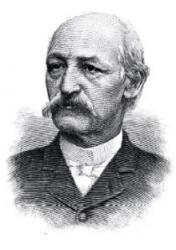Planning worship?
Check out our sister site, ZeteoSearch.org,
for 20+ additional resources related to your search.
- |
User Links
Search Results
Jesus, o'er the grave victorious
Author: E. E. Higbee Appears in 11 hymnals Matching Instances: 11 Used With Tune: TALMAR
Jesus, o'er the grave victorious
Jesus, O'er The Grave Victorious
Author: Elnathan E. Higbee Hymnal: The Cyber Hymnal #10892 Meter: 8.7.8.7 D Lyrics: 1 Jesus, o’er the grave victorious,
Conquering death, and conquering hell,
Reign Thou in Thy might all glorious,
Heav’n and earth Thy triumph swell.
Saints in Thee approach the Father
Asking in Thy name alone;
He, in Thee, with love increasing,
Gives and glorifies the Son.
2 Down to earth in all its darkness
From the Father Thou didst come;
Seeking sinners in their blindness,
Calling earth’s poor exiles home;
By a life of love and labor
Doing all the Father’s will;
Giving to each suppliant sufferer,
Precious balm for every ill.
3 Patient ever in well-doing,
Moving on in steps of blood,
Thro’ the grave to heights of glory,
Reconciling us with God.
Here, in Thee, is peace forever;
We can tribulation bear;
Kiss Thy cross, with rapture knowing
Thou hast conquered suffering there. Languages: English Tune Title: CHIGWELL
Jesus, O'er The Grave Victorious
Jesus, o'er the grave victorious, Conquering
Author: E. E. Higbee Hymnal: The Hymnal of the Reformed Church in the United States #d320 (1890)
Jesus, o'er the grave victorious, Conquering
Jesus, o'er the grave victorious
Author: E. E. Higbee Hymnal: Hymns for the Reformed Church in the United States #234 (1874) Languages: English
Jesus, o'er the grave victorious
E. E. Higbee

1830 - 1889 Author of "Jesus, o'er the grave victorious" in The Chapel Hymnal Born: March 27, 1830, St. George (near Burlington), Vermont.
Died: December 13, 1889.
Buried: Emmitsburg, Maryland.
Son of state legislator Lewis Higbee and Sarah Baker Higbee, Elnathan was educated at the University of Vermont, graduating in 1849. By the time of his graduation, he had already begun teaching school in Burlington at age 16; his first permanent position was as an assistant teacher at an academy in Woodstock, Vermont. He stayed there only a short time before moving to another teaching position in Emmitsburg, Maryland, becoming head of the mathematical and classical departments at a school organized by his brother-in-law, George W. Aughinbaugh. In 1850, he accepted a position s a private tutor in the family of Joshua Motter of Emmitsburg, among whose daughters he found his future wife.
Around late 1851 or early 1852, Higbee entered the Theological Seminary of the Reformed Church at Mercersburg, Pennsylvania, where Philip Schaff was among his teachers.
He went on to become a preacher, poet, and educator, and for nine years, served as Superintendent of Public Instruction of Pennsylvania. After seminary, he taught mathematics at the high school in Lancaster, Pennsylvania, for a year. Later in his life, when he was state superintendent for education, he would discover one of his old pupils had become principal of the Lancaster high school.
In 1845, Higbee was licensed to preach the Gospel by the Maryland Classis of the Reformed Church. His first pastorate was at the Congregational Church in Bethel, Vermont. In 1858, he returned to Emmitsburg, and 1859 to the First Reformed Church of Tiffin, Ohio, where he also filled the chair of Latin and Greek at Heidelberg College. In 1862, he moved to Pittsburgh to become pastor of Grace Church. In 1864, he became professor of Church History and New Testament Exegesis at the Theological Seminary of the Reformed Church in Mercersburg, Pennsylvania. While there, he was of the prime movers in the foundation of Mercersburg College in 1865. In 1881, Governor Hoyt appointed him State Superintendent of Public Instruction of Pennsylvania.
Sources: Pennsylvania School Journal
www.hymntime.com/tch/
E. E. Higbee
Henry K. Oliver
1800 - 1885 Person Name: Henry Kemble Oliver, (1800-1885) Composer of "SAXONY" in The Sunday School Hymnal Henry Kemble Oliver (b. Beverly, MA, 1800; d. Salem, MA, 1885) was educated at Harvard and Dartmouth. He taught in the public schools of Salem (1818-1842) and was superintendent of the Atlantic Cotton Mills in Lawrence, Massachusetts (1848-1858). His civic service included being mayor of Lawrence (18591861) and Salem (1877-1880), state treasurer (1861-1865), and organizer of the Massachusetts Bureau of Statistics and Labor (1867-1873). Oliver was organist at several churches, including Park Street Congregational Church in Boston, North Church in Salem, and the Unitarian Church in Lawrence. A founder of the Mozart Association and several choral societies in Salem, he published his hymn tunes in Hymn and Psalm Tunes (1860) and Original Hymn Tunes (1875).
Bert Polman
Henry K. Oliver
Claude Goudimel

1514 - 1572 Person Name: Claude Goudimel, 1514-1572 Composer of "CHIGWELL" in The Cyber Hymnal The music of Claude Goudimel (b. Besançon, France, c. 1505; d. Lyons, France, 1572) was first published in Paris, and by 1551 he was composing harmonizations for some Genevan psalm tunes-initially for use by both Roman Catholics and Protestants. He became a Calvinist in 1557 while living in the Huguenot community in Metz. When the complete Genevan Psalter with its unison melodies was published in 1562, Goudimel began to compose various polyphonic settings of all the Genevan tunes. He actually composed three complete harmonizations of the Genevan Psalter, usually with the tune in the tenor part: simple hymn-style settings (1564), slightly more complicated harmonizations (1565), and quite elaborate, motet-like settings (1565-1566). The various Goudimel settings became popular throughout Calvinist Europe, both for domestic singing and later for use as organ harmonizations in church. Goudimel was one of the victims of the St. Bartholomew's Day massacre of Huguenots, which occurred throughout France.
Bert Polman
Claude Goudimel


 My Starred Hymns
My Starred Hymns


